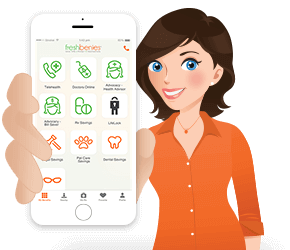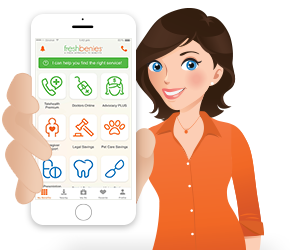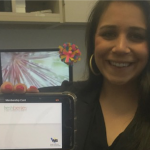WHEN TELEHEALTH WON'T WORK: 4 SCENARIOS
When is the last time you had a health issue and wished you could just call a doctor for help or to answer a question or to get a prescription for a simple ailment?
It’s possible and it’s called Telehealth. So, what is telehealth, you ask? Simply put, you can use telephone or video to have a consultation with a licensed physician. Click here to read an article I wrote about how telehealth can help you. If you’re not familiar with the tactical steps of a telemedicine doctor visit, click here to learn more.
As great as it is, there are scenarios where you should skip telehealth and see a doctor in person. Here are four…
1) Preventive care
An annual physical is an important part of maintaining your overall health - telehealth won’t replace that. Regular check-ups are important for fostering a relationship with a local family doctor who knows you, your body, your personality, your medical history, your family history, your lifestyle. It’s the time when you get counseled on your personal health status and it’s important. In addition, you can’t get blood tests, urinalysis, mammograms, pap smears or prostate exams (FUN!), etc. over the phone. These days, most medical plans cover annual preventive care, so do it!
2) True Emergencies
I always joke about NOT calling a doctor when you have a severed arm (duh!). Obviously, there are situations when you should go directly to an urgent care clinic or emergency room. The trick is determining what is and what isn’t a true emergency. I’ve heard plenty of stories of people receiving $1,500 ER bills for stomach pains that turned out to be a simple (yet excruciating) case of gas or food poisoning. I bet a $1,500 bill (for a bottle of Pepto Bismol) causes more stomach pains. Click here to read an article I wrote about navigating the cost of healthcare in an emergency vs. non-emergency situation.
Here’s a scenario: let's say it's 2 a.m. and you wake up to discover your heart is racing. Scary? Yes! Do you rush to the emergency room? You don’t know! Instead of turning to Facebook or WebMD (only to learn that it could just be stress or a massive heart attack), you can use telehealth to visit with a licensed physician and get quick advice about next steps.
fb2.0_prescription_savings_blog_ad.jpg

3) Chronic Care
If you have a chronic condition like diabetes, high blood pressure, heart disease, etc., you should be under a doctor’s care for healthcare and medications. Here's a scenario - you've been taking the same blood pressure medication for three years and your pharmacy tells you your prescription has expired. You call your doctor to write a prescription for a refill and they ask you to come in. There’s a good reason for this. The doctor may want to check your heart rate, see if you’ve put on weight, run a test, or check your overall physical condition before refilling the prescription. Or, perhaps there’s a new or different medication that’s a better fit for you.
See point #1. If you’re getting your annual physical, there’s less of a chance this scenario will happen to you. But, telehealth is not the program to get your chronic condition medications filled or refilled.
Now, let’s say you’re in-between appointments or traveling and need a short-term refill to hold you over. In many cases, telehealth is a good option to get help in this situation.
4) Prescriptions for some drugs
While telehealth can help with prescriptions for a wide range of conditions that deliver direct medicinal value (like antibiotics and antihistamines - Amoxicillin, Azithromycin, Augmentin, Cipro, Flonase Nasal, Prednisone, Diflucan, etc.), there are some drugs for which telehealth is not an option.
Are you taking an anti-depressant like Cymbalta, Prozac and Zoloft? What about a substance controlled by the DEA (click here for a list)? How about a non-therapeutic drug like Viagra or Cialis? Telehealth is not the place to get a prescription for these types of medications or any drugs that might be harmful because of their potential for abuse.
Telehealth is growing (click here to learn more) and it’s an amazingly helpful service, but it’s not the “cure” (see how I did that) for all medical situations. Knowing this will improve your experience with a telehealth service.
Now, it’s your turn to tell your story! Have you used a telehealth service? What has your experience been? Do you have questions? Feel free to post them in the comments below or email me at heidi@freshbenies.com.















